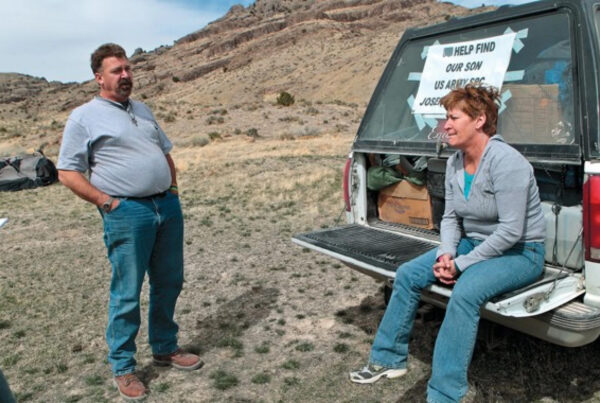This week, the Texas Supreme Court ruled against a Dallas-area woman seeking an abortion.
Kate Cox asked a judge last week to grant her a temporary injunction to end a non-viable pregnancy. Travis County District Judge Maya Guerra Gamble ruled in her favor — but soon after that decision was announced, Attorney General Ken Paxton appealed to the state Supreme Court to overturn it.
Cox had already left the state for the procedure when the court overturned the order.
The historic lawsuit, brought by the Center for Reproductive Rights, has broader implications for access to reproductive health care in Texas. Elizabeth Sepper, a professor of law at UT Austin, said she expects the case to be dismissed at this point.
“The Texas Supreme Court has sent the case back to the trial court,” she said. “I would anticipate that the trial court will likely dismiss the case.”
Mary Ziegler, the Martin Luther King Jr. Professor of Law at UC Davis in California, said she expects the same but also noted that there have been cases regarding abortion that have continued despite no longer being relevant to the original plaintiff.
“Historically, in abortion cases, there were occasions where courts would say this is an issue that could happen again. The technical legal term was ‘capable of repetition yet evading review,’ meaning sometimes because of the timeline of a pregnancy, someone is going to either carry the pregnancy to term, terminate the pregnancy. Something’s going to happen before a court has a final chance to weigh in,” Ziegler said. “But I think given the Texas Supreme Court’s order here and the fact that Cox has already gone out of state to get an abortion, we’re likely to have seen the end of this case.”
Sepper said there are still questions about how medical exceptions to Texas’ abortion ban should be applied — the Texas Supreme Court in their decision asked the state medical board to weigh in and offer doctors more guidance.
“Medical exception applies where there’s a life-threatening condition involved with the pregnancy that either places the person at risk of death or poses a serious risk of substantial impairment of a major bodily function, which raises a lot of questions,” Sepper said. “Who decides what’s the standard to use to decide what is substantial, what is serious, what is a major – as opposed to a minor – bodily function?”
Many advocates for reproductive health have mentioned the privacy implications of going to court in order to seek permission or to maybe determine a medical exception to get an abortion, as well as the financial cost of both the court case and traveling out of state for health care.
“Part of the thing that makes this uncertainty so complicated for patients is that there is no answer as to when an abortion is available. This is true for patients who are already in pretty extreme circumstances, people who are experiencing some sort of major health threat,” Ziegler said. “And they then need to either travel out of state to get an abortion, try to get a lawyer and seek some kind of clarification, hope their physician is willing to offer clarification.
“One of the things, of course, that people pointed out about Kate Cox’s case is that many patients in Texas and many people in Texas wouldn’t have had the means or ability to bring their case to court, as Kate Cox did. So this is likely the kind of tip of the iceberg in terms of what people in Texas are actually experiencing.”
» GET MORE NEWS FROM AROUND THE STATE: Sign up for Texas Standard’s weekly newsletters
After the Travis County District Court judge authorized Cox to receive the procedure, Paxton first threatened legal action against any medical professionals or facilities who might help Cox get an abortion. Ziegler said Paxton’s timing was a bit unusual.
“One of the things that was also pretty remarkable at the time was that there was no Texas Supreme Court order overriding what the lower court had done,” she said. “So essentially, the attorney general was saying if you rely on a valid court order saying you can get this abortion or that you, in this case, can perform this abortion, I’m going to prosecute you anyway.
“So it was unusual both in the kind of aggressiveness, I think, of the attorney general, but also in the idea that you can’t rely on valid court orders that tell you you have a right to do something.”
Sepper said Paxton’s actions also seem to contradict the state’s legal argument in this and similar cases.
“The State of Texas has been arguing that the state is not responsible for the denial of emergency and urgent abortion care,” Sepper said. “And Ken Paxton made quite clear that it is the state that is standing between women and medically necessary abortion.”
Ziegler said this case may set precedent for other cases, but it is not exactly clear how yet.
“We’ve seen in terms of just people adopting a similar strategy, there’s already a class action unfolding in Kentucky of plaintiffs like Kate Cox, who were experiencing medical emergencies in pregnancy and seeking court intervention,” she said. “I think there are also political ramifications. I think it’s been both surprising and disturbing to a lot of people who are not closely following abortion law and politics that Kate Cox was denied access to an abortion here and that the State of Texas was so aggressive in trying to stop her.
“So I think that there’s a story that’s being told through this case about what abortion in Texas actually looks like that is not doing any favors to Republicans in the state, but also, I think, nationwide.”
Sepper said she will continue to watch the other major abortion cases in Texas that are ongoing.
“We have Amanda Zurawski v. Texas, which the Supreme Court heard oral argument in, that is also about the scope of the medical exception,” she said. “We have ongoing litigation involving Texas abortion funds who are making a variety of constitutional arguments against abortion bans as applied to their activities in the state of Texas. And just this morning, on the federal level, the Supreme Court granted cert in a case, of course, out of Texas involving mifepristone and its availability nationwide.”
Ziegler said that in many ways, the cases that started in Texas or continue to be litigated in Texas will have national consequences.
“There are a lot of cases that are being watched not just in Texas but nationwide,” she said. “So I think Texas has sort of become the epicenter in shaping strategy around abortion for people on either side of the issue and also shaping the law nationwide. So while these are Texas cases that either began in or are currently being litigated in Texas, their implications are much broader.”














